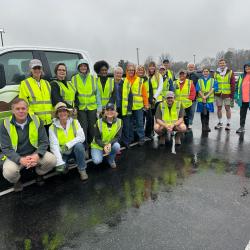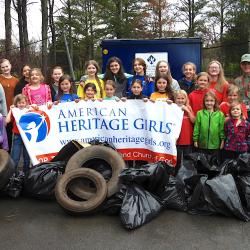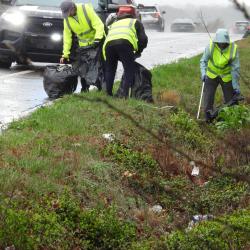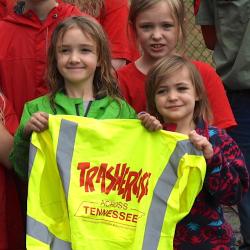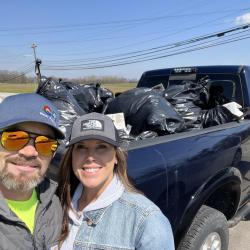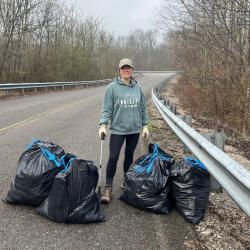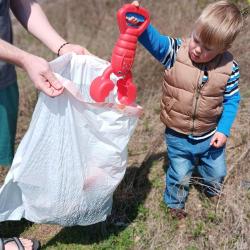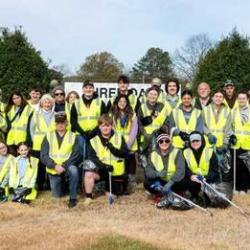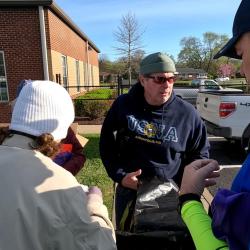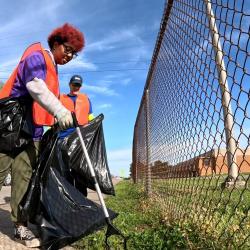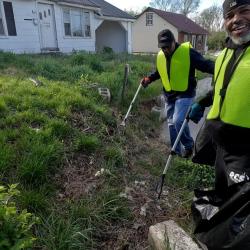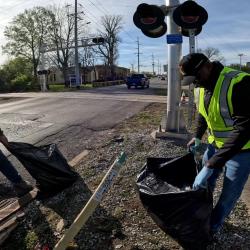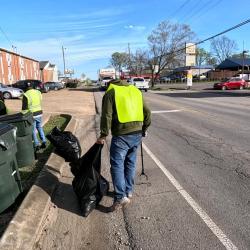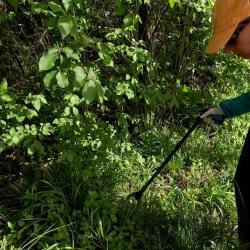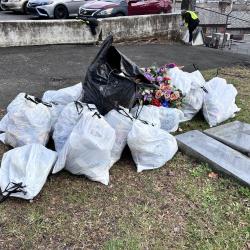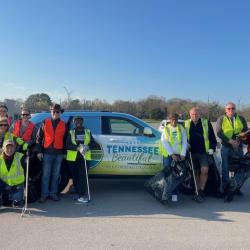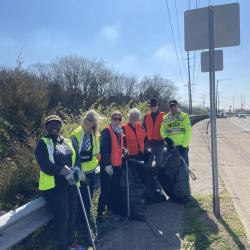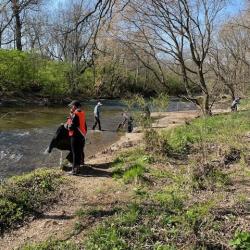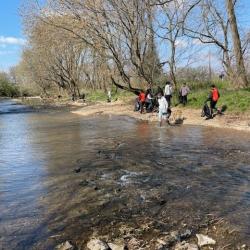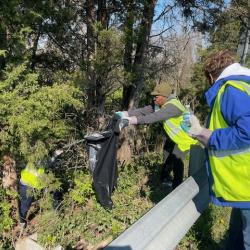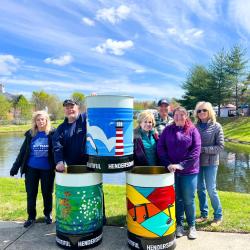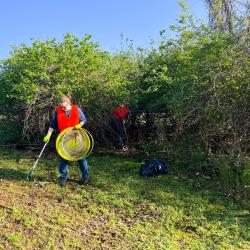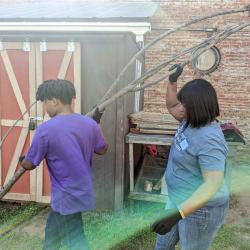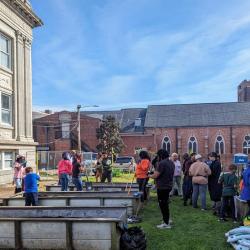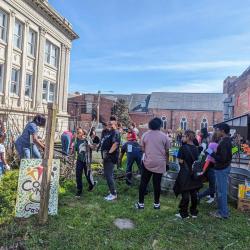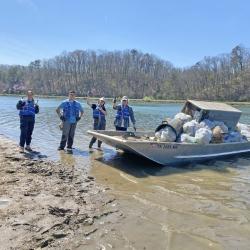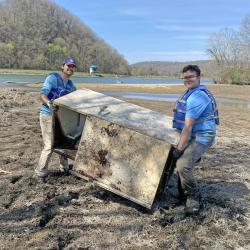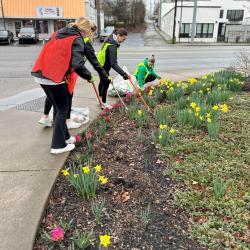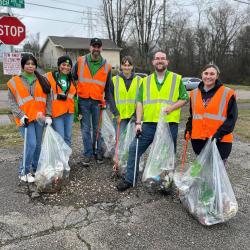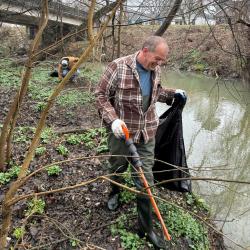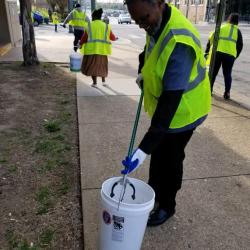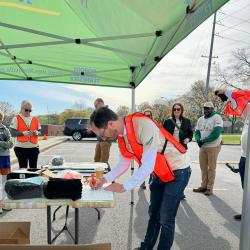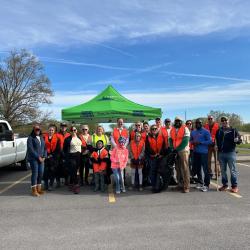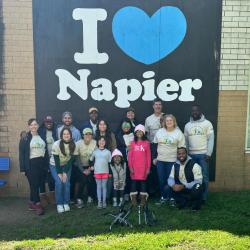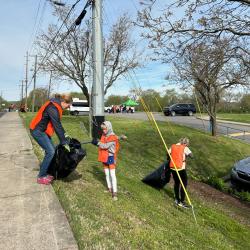Municipal cleanups help Keep Tennessee Beautiful
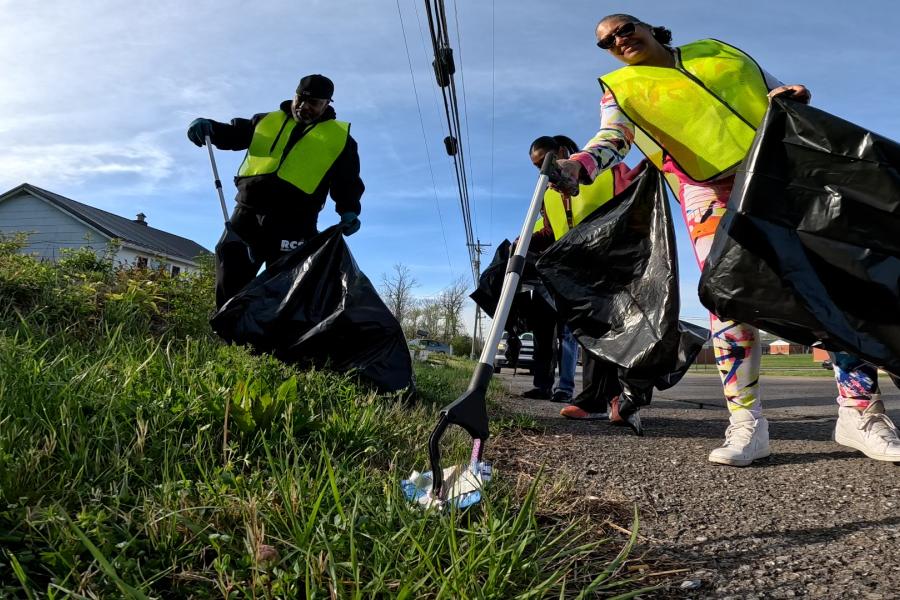
By KATE COIL
TT&C Assistant Editor
As weather warms across Tennessee, municipalities are conducting their own spring cleanings.
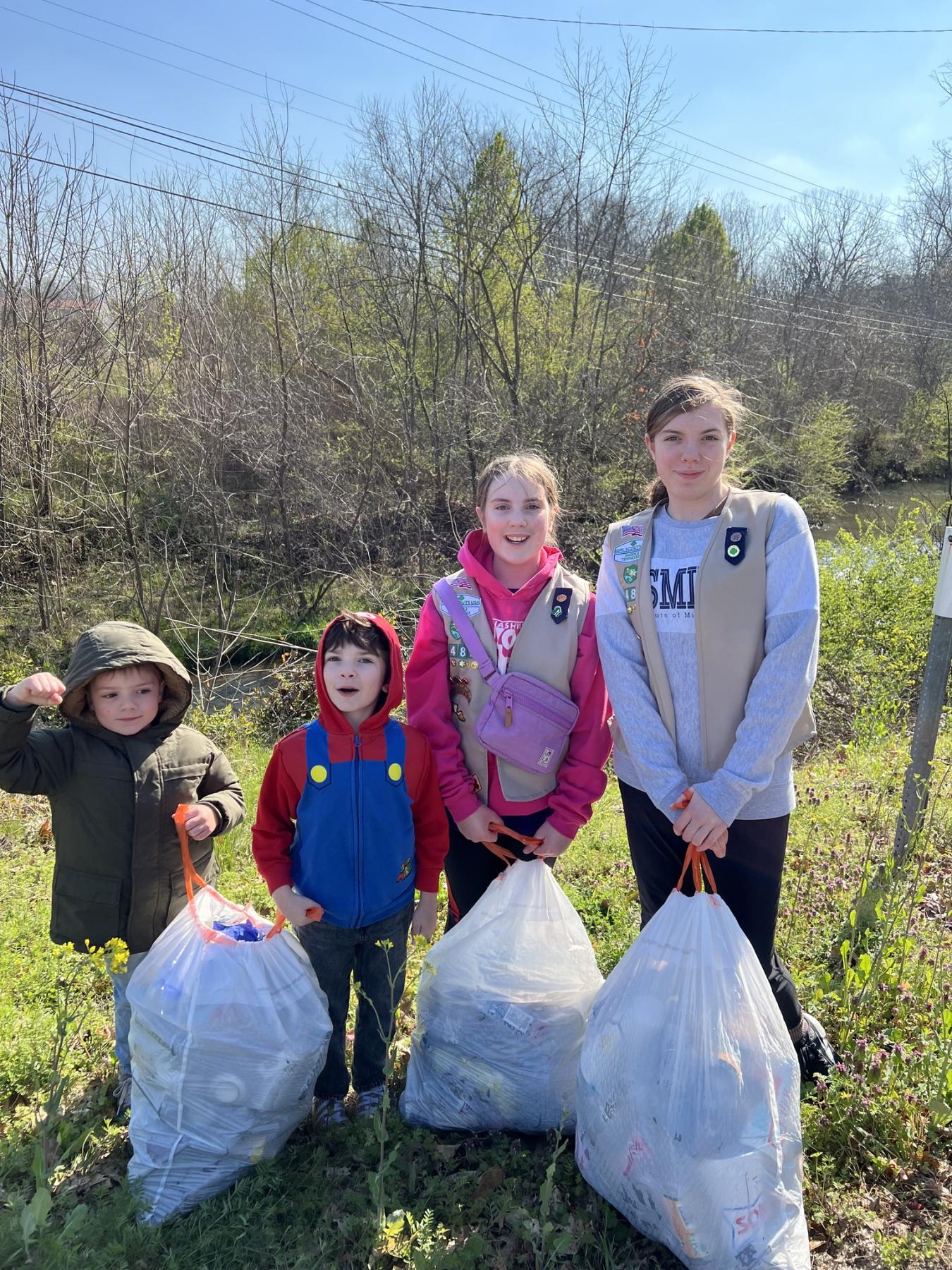
Keep Tennessee Beautiful, TML Platinum Level Sponsor and the state affiliate for Keep America Beautiful, has been working with its numerous local and municipal affiliates to conduct spring trash pick-ups and cleaning efforts as part of the Great American Cleanup.
No matter size or location, Keep Tennessee Beautiful Director of Affiliate Services Kyle Howard said there are several steps that municipalities can take to start their own clean-up initiatives and build support for participation in litter removal projects year-round. Howard said communities who reach out to Keep Tennessee Beautiful can get a jumpstart on hosting their own clean-up events with ready-made kits and materials that help with everything from outreach to litter removal to disposal procedures.
“We sponsor the state-wide effort for the Great American Cleanup, and our goal is to have at least one cleanup in all 95 counties for that,” Howard said. “We send out kits for anyone who registers to do a cleanup on our website. Cities can partner with their county litter grant coordinator who administers the grant from TDOT that helps tackle the litter problem in local communities. TDOT has graciously allowed part of the education funding from the litter grant to be used to join Keep America Beautiful as an affiliate. The local mayor’s office can always reach out to us to see what steps they need to take. We are on the state affiliate level, which is a much lower requirement than the national affiliate. It actually doesn’t cost any money to join if you do some service hours in your community or host a cleanup.”
CONDUCTING A CLEANUP
As with any community effort, finding engaged volunteers willing to participate is a core part of hosting a cleanup event. Howard said identifying community stakeholders who are themselves engaged and then can help continue to build support for the efforts can help turn a one-time clean-up event into a continuing program in the community.
“I typically advise to look for stakeholders, people who benefit from a clean, green beautiful community,” he said. “That could be a homeowner’s association, a Rotary Club, a downtown business association who is having difficulty keeping their area clean, and volunteer groups. You really have to find passionate people, because this is really a passionate effort; it’s not a glamorous job or a high-paying. Who your core group may be could vary greatly from community to community.
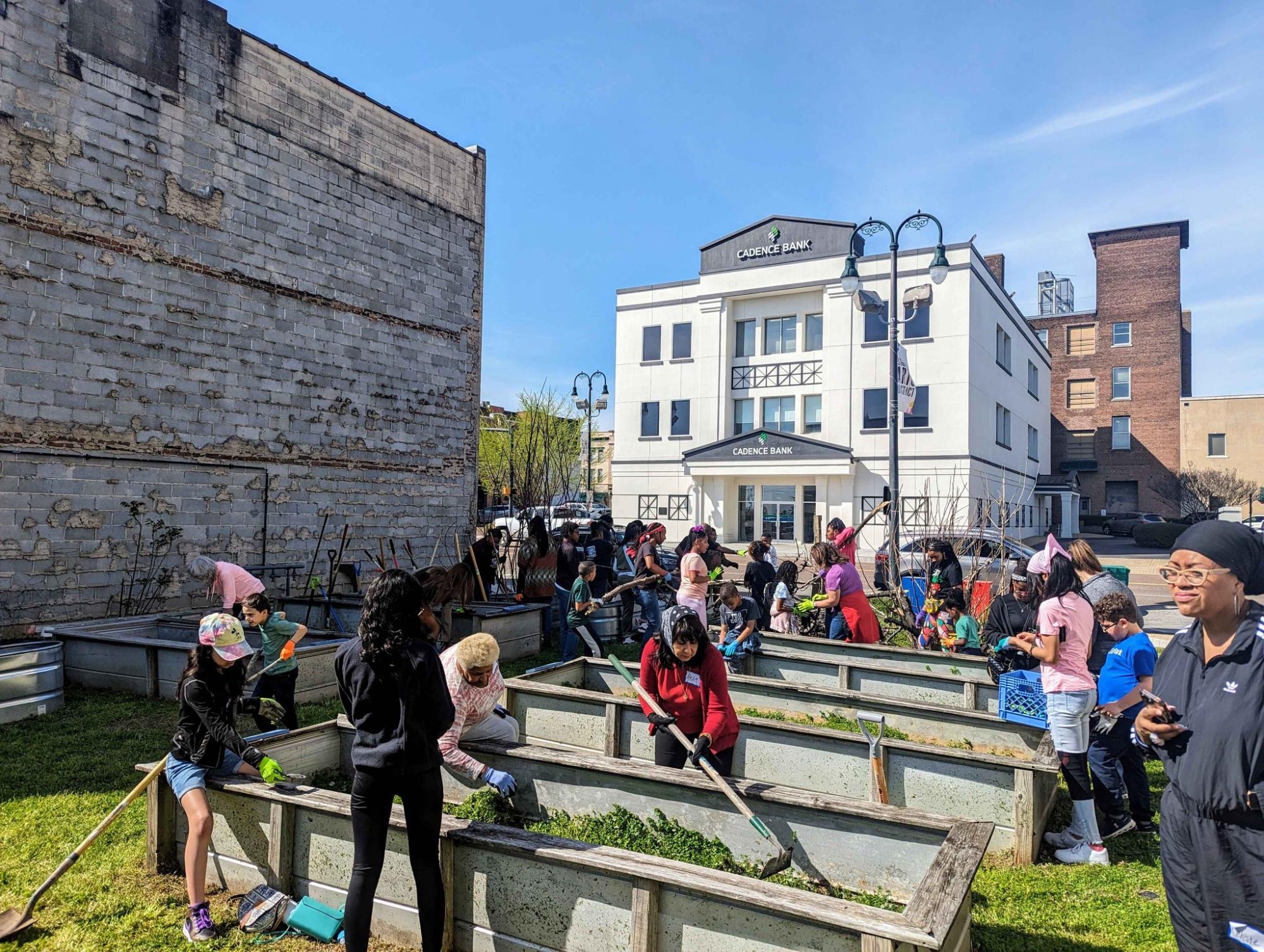
"You really need a handful of point people, because we have methods for organizing volunteers and getting them to show up. You need a person who is willing to put the work in on the local level, and having local resources at their disposal is also crucial. People who are already invested in this may just need more of a network so they don’t feel like they’re going at it alone. There is a real strength in the state network sharing resources so you don’t have to reinvent the wheel on the local level.”
Supplies are another essential part of hosting a successful cleanup. Howard said Keep Tennessee Beautiful typically sends out kits including gloves, hand sanitizer, and trash bags. He said those hosting a cleanup may also want to provide litter grabbers, especially for heavy items or unsafe items, as well as safety vests if operating near roadways.
There are also methods to identify what areas of a community might need cleaning – or more frequent cleaning than others.
“I would suggest heavily-trafficked roadways, especially those stop lights, stops signs, or bus stops where people have time to think about what is in their car and throw it out,” Howard said. “We call those transition areas, and they are where you will find the most trash. Also, you can just follow the topography of your area to the lowest point. That is why river cleanups tend to get the most poundage because everything gathers at the lowest point, which is often along water.”
HEALTH AND SAFETY
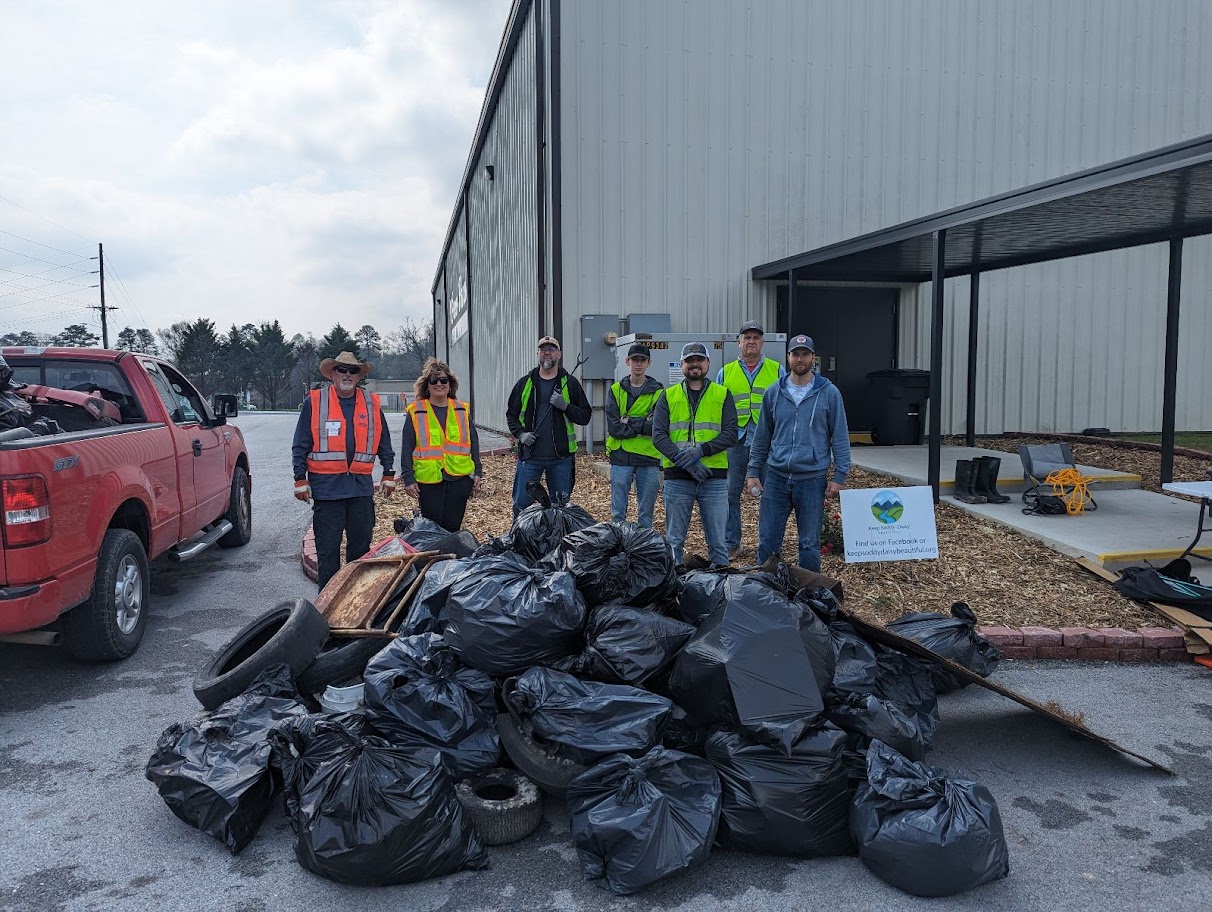
Safety is an essential part of a cleanup as well. Howard said Keep TN Beautiful has a checklist for volunteer safety when hosting a litter cleanup that includes advice like keeping water on hand to stay hydrated, putting on sunscreen and insect repellent, and hazards to watch for during cleaning.
For special areas like riverbanks and lakes, Howard said supplies may change and Keep Tennessee Beautiful has funds set aside to help with special cleanups like these. Full Keep America Beautiful affiliates can receive up to $10,000 to clean up waterways, areas of special concern, or to host cleanups as part of disaster recovery efforts.
“City budgets can get tied up quickly, so we like to offer special assistance to those who have taken the time to join our network and shown the network is important to them and their community,” Howard said.
Before heading out for a cleanup, Howard also advises having a plan for how to dispose of what is collected – especially for items that may not be welcome at the local landfill.
“You need to have a plan for what to do with the trash after the cleanup,” he said. “You need to have a vehicle to take it somewhere or know that the city or county is going to come to pick it up without charging you. That can be the quickest way, but having a truck or something to haul away the trash is essential. You get more trash than you expect most of the time. Finding a tire or two adds up quickly. It’s a nationwide issue that what you can dispose of locally varies county-to-county. Call your local landfill or look online to see if there are any resources they do not accept. We also have some resources online about where you can take certain things. Aluminum can be kept for recycling. There is also a website called Earth 911 that provides information about the closest recycling facilities near you.”
OUTREACH AND EDUCATION
Beyond keeping the community beautiful, Howard said there are many benefits to hosting a community cleanup.
“There is actually a huge financial burden associated with litter and picking it up,” Howard said. “TDOT has to spend about $25 million a year dealing with litter, and that’s taxpayer dollars that could be used much more responsibly. You will see property values drop as much as 15% in the presence of visible litter. On a more local level, it costs $400 a mile to contract our litter cleanup. Volunteer organizations can get that done for $12 a mile. There is also a psychology behind the presence of litter in general. The presence of litter normalizes it as a behavior. You see litter rates go higher the more litter there is. Keeping things clean is one of the best preventatives out there.”
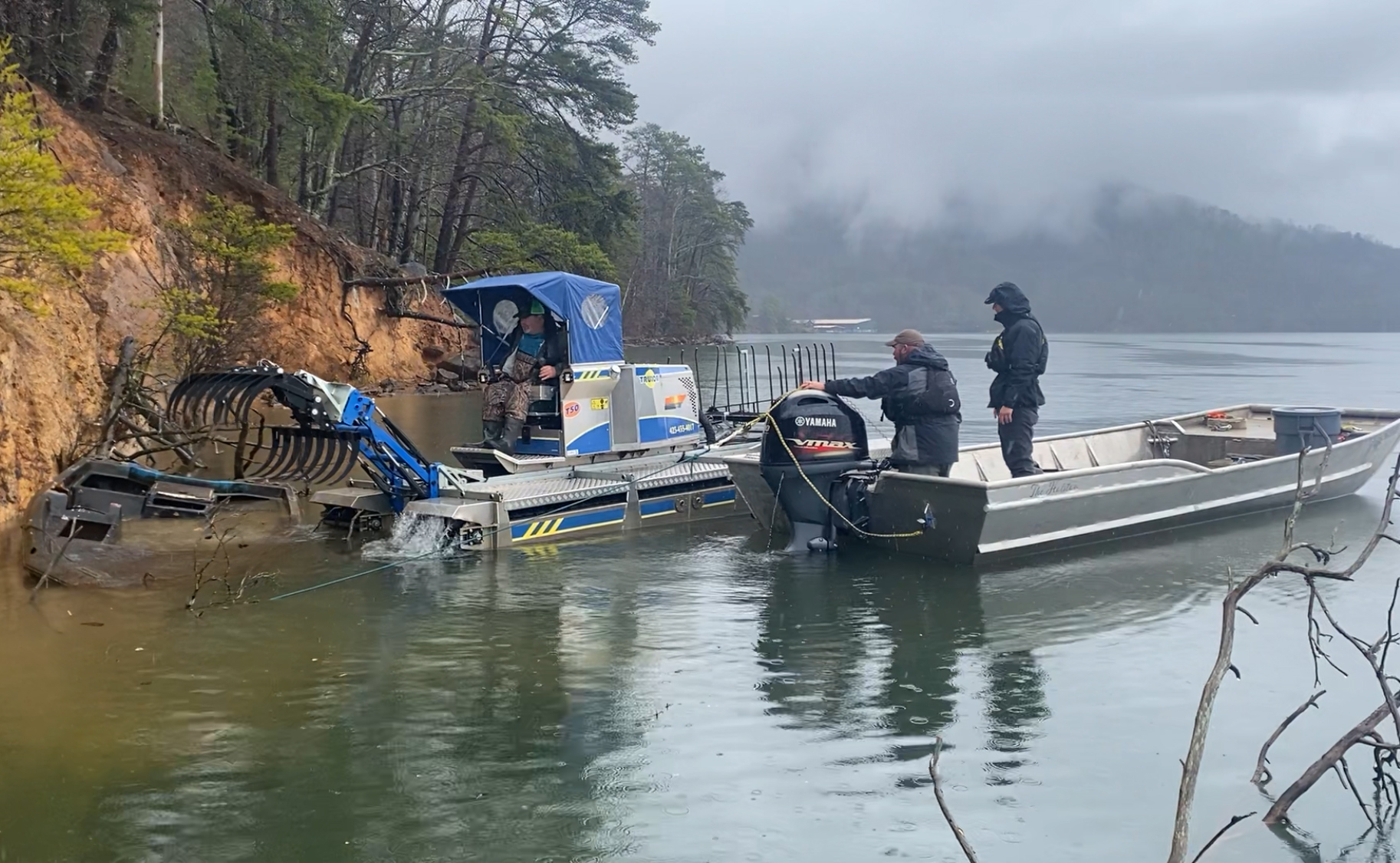
As trash tends to find its way to the lowest point, Howard said litter is also a major threat to local watersheds.
“Water made the Grand Canyon; it’s extremely efficient at breaking things down,” he said. “Water will break down a plastic bottle into particles so fine you will never see them, and that is why we have such a microplastics problem in the U.S. There was a German professor who swam the entire Tennessee River and took samples along his route. He found the Tennessee River had a greater concentration of microplastics than the Yangtze River in China. That was pretty shocking. If you don’t want to drink it, don’t litter it. It goes from the storm drain to the storm channel to your local waterway.”
Community education is another important component of making and keeping a clean community.
“The awareness of the problem is extremely lacking,” Howard said. “In the most recent study by TDOT of highway litter, it estimated 78% of litter is caused by negligent behavior. That means that people aren’t throwing things on the ground on purpose, but three out of four pieces of litter on the highway are there by accident. You may not realize something you didn’t take out of the back of your truck or an unsecured load on a shipping container has left litter.
"We found a huge problem of people going too and from the local dump not securing things on their trip and it falling out. I would also encourage local leaders to participate in the litter grant program we provide for municipal police departments. Each department can receive up to $5,000 to tackle litter, which can be used on overtime hours. It helps them to patrol problem areas and catch people in the act. We are taking applications for that now.”
The 26th Annual Great American Cleanup began on March 19, 2024 and runs through June 22, 2024. April is also Keep America Beautiful Month. For more information and resources, visit https://www.keeptnbeautiful.org/.

